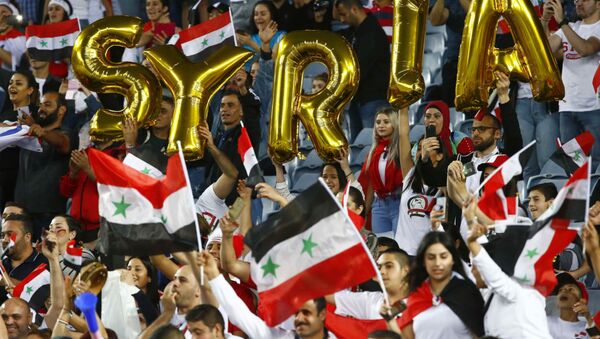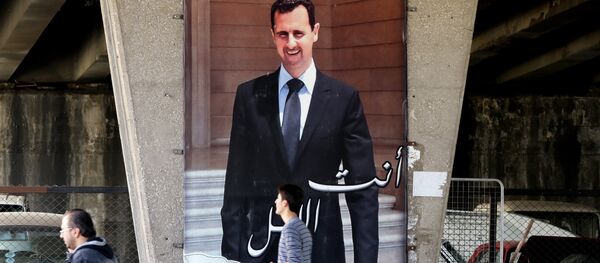Syria's qualification effort for the 2018 World Cup was directly hindered by the raging war, with home games played in Malaysia, around 7,000 km away from the war-torn nation, due to safety concerns.
A small number of avid fans regularly made the journey to spur on the Qasioun Eagles.
Like the country's secular armed forces and government, the Syrian national football team is comprised of players from across Syria, with varying religious beliefs and backgrounds.
The second leg of the crucial World Cup qualifying play-off with Australia in Sydney was officially Syria's away game, though more fans attended this event than any previous match held in Malaysia, as Australia is home to a significant amount of Syrian diaspora, most of whom migrated before the nationwide conflict erupted in 2011.
"Cannot quite believe the number of Syrians inside the ground. They've got a huge support behind one of the goals. Flags being waved with gusto. What a sight. Don't think I've ever heard their national anthem before either. It's very forgettable in truth…," a sports commentator for ByTheMinute.com posted on the platform's live text highlights of the match.
Syria was also supported by many non-Syrians on social media, including footballers and commentators.
Syria should be so proud of what they've achieved. Heartbreaking to see players so broken, but their journey has won the hearts of so many. pic.twitter.com/Ksmb6nEQav
— Arsène's Son (@hughwizzy) October 10, 2017
The match, and Syria's wider football campaign, didn't escape the politics of the Syria crisis, with controversy erupting over the decision to only allow the official Syrian national flag into the stadium, not the green variant, which is often associated with opposition forces.
Syria's valiant effort to qualify for the World Cup isn't just an example of a sporting success. It's an indication of the nation's stance and resistance to terrorism, with daily life continuing in spite of the violence, and associated dangers.
On Wednesday, October 11, just a single day after the game, Damascus was hit by three suicide bombers, killing 9, and injuring over 10 additional civilians. Two bombs targeted a police HQ, while the third and final device was detonated near a busy market situated near the police station.
In defiance of these recent attacks, and the broader conflict, restaurants and bars in government-held areas continue to bustle, while nurseries and universities continue to operate, and cope with the additional challenges the conflict has brought about.
Syria's World Cup dream is over, but, more importantly, pro-government forces are continuing to make progress against Islamist terrorists on several fronts, inching the country closer to peace and stability.
During the latter part of 2017, pro-government focussed their efforts on retaking the eastern, oil-rich province Deir Ezzour from Daesh terrorists.
Operations led by the Syrian Arab Army (SAA) in the province, which borders Iraq, have resulted in the lifting of the multi-year siege on Deir ez-Zor city and the liberation of thousands of square kilometers of territory, as well as several oil fields.
The views expressed in this article are solely those of the author and do not necessarily reflect the official position of Sputnik.




